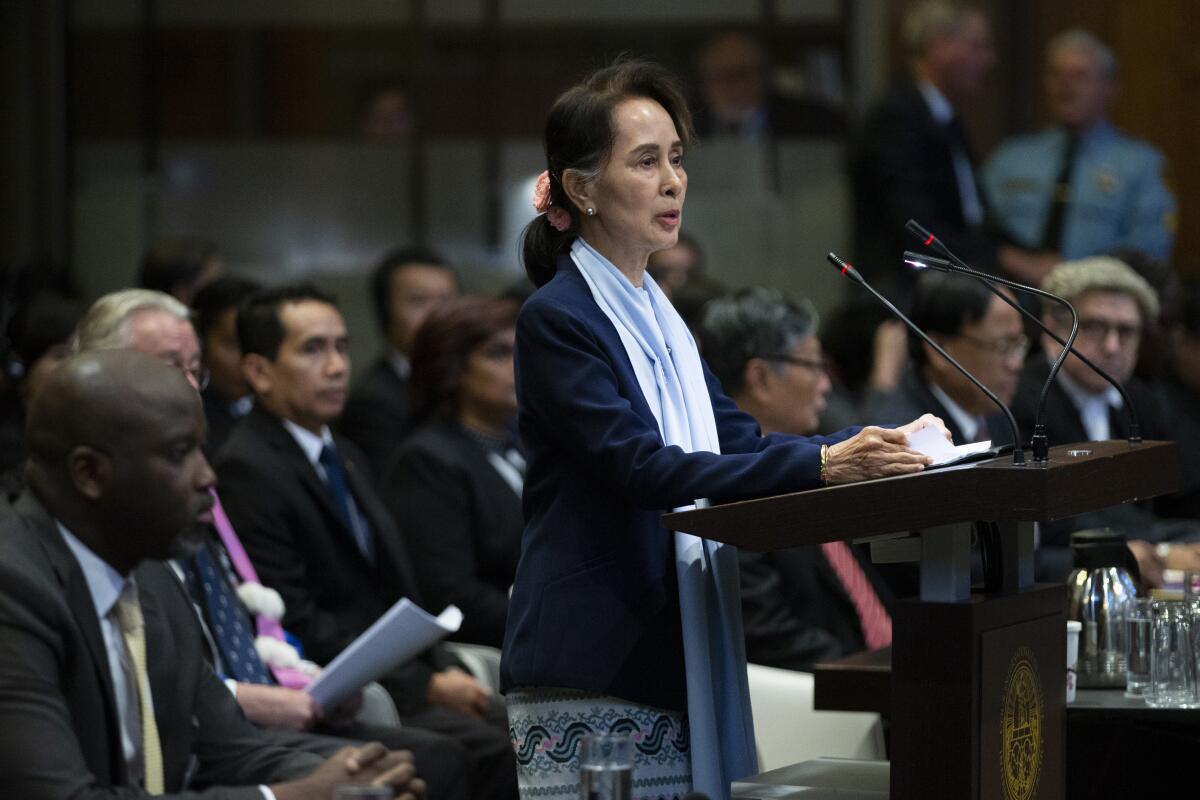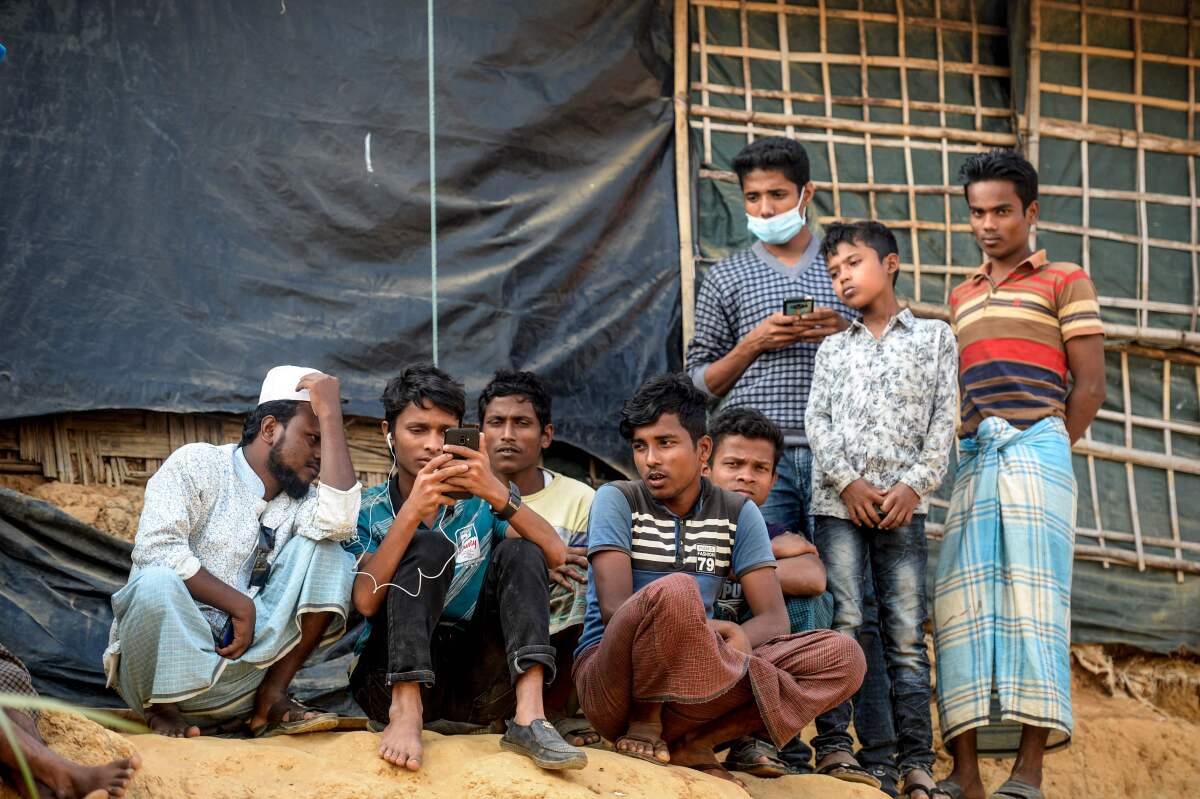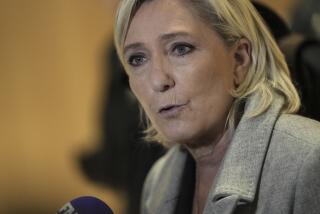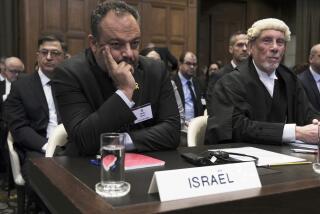Myanmar’s Aung San Suu Kyi dismisses claims of genocide at The Hague

- Share via
THE HAGUE — In an appearance that further marked her fall from grace, Myanmar’s civilian leader Aung San Suu Kyi mounted a defense of her homeland Wednesday, calling claims of genocide “incomplete and misleading” a day after a tribunal heard damning accounts of atrocities inflicted on minority ethnic Rohingya.
The 74-year-old disgraced human rights figure, speaking on the second day of a three-day hearing before the United Nations International Court of Justice, reiterated her government’s position that Rohingya insurgents were to blame for instigating a conflict starting in 2016.
U.N. findings and media reports, however, show Myanmar’s army and security forces engaged in an ethnic cleansing campaign against the Muslim Rohingya, forcing more than 700,000 to flee to refugee camps in neighboring Bangladesh to escape mass killings, rape and terror.
Suu Kyi’s defense largely amounted to this: How could Myanmar commit genocide if it subsequently opened its own investigation into the conflict and advocated repatriation of Rohingya and social programs to ease ethnic tension.

“How can there be an ongoing genocide or genocidal intent when these concrete steps are being taken in Rakhine?” Suu Kyi said, referring to the western state bordering Bangladesh where the Rohingya are confined.
Those steps, however, have widely been dismissed by experts as disingenuous, particularly efforts to hold the military to account. The army, for example, cleared itself of allegations that it carried out ethnic cleansing. Myanmar has blocked U.N. investigators from visiting Rakhine.
“Myanmar’s efforts in this regard have been meager and conducted in bad faith,” said Aaron Connelly, a research fellow at the International Institute for Strategic Studies in Singapore. “Military and civilian bodies repeatedly cleared the military of any wrongdoing in 2017; later inquiries were only set up to forestall international efforts to secure accountability.”
Suu Kyi’s startling appearance at The Hague, which was not required for someone of her stature, appears to be a political maneuver to placate powerful army generals at home and win nationalistic support with an election looming next year. Many of the country’s majority Buddhist Bamar view the Rohingya as interlopers and have cheered Suu Kyi’s decision to defend the country.
Rohingya activists, meanwhile, said they were appalled by Suu Kyi’s remarks as she seemed unmoved by the harrowing testimony delivered a day earlier about atrocities such as the stabbing of infants and sexual mutilation of women.
“I thought she would change her mind and stand for justice,” Nay San Lwin, co-founder of the Free Rohingya Coalition, said from inside the court. “But I was wrong. History will remember that a Nobel Peace laureate stood for genocide.”
Suu Kyi told the panel of 17 judges Wednesday that mistakes were probably made by the military, but that it was being handled by Myanmar’s justice system.
“It cannot be ruled out that disproportionate force was used by members of the defense services, in some cases, in disregard of international humanitarian law, or that they did not distinguish clearly enough between [Rohingya insurgents] and civilians,” she said.
Charges of genocide were brought against Myanmar by the small West African nation of Gambia, which is backed by the 57-member Organization of Islamic Cooperation.
Gambia is seeking an injunction against Myanmar to prevent any continued persecution of Rohingya.
Special correspondent Diamond reported from The Hague and Times staff writer Pierson from Singapore.
More to Read
Sign up for Essential California
The most important California stories and recommendations in your inbox every morning.
You may occasionally receive promotional content from the Los Angeles Times.











